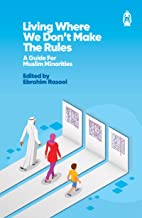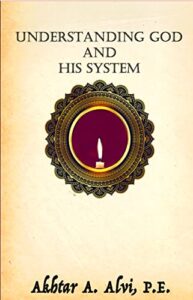

Rebellious Wives, Neglectful Husbands: Controversies in Modern Qur’anic Commentaries
Hadia Mubarak
2022. Pp. 368. HB. $29.95
Oxford University Press, New York, N.Y.
The past two decades have witnessed a proliferation of scholarship focused on women and gender in the Quran. Yet, much of it evades a substantive engagement with tafsīr as a scholarly genre in the field of women. This stems partially from evaluations of this tradition as patriarchal and incapable of offering egalitarian interpretations. This book argues for a critical reassessment. Rather than discard it as meaningless to Muslims’ contemporary efforts to recover the Quran’s ethics, this book brings it into conversation by exploring modernity’s impact on three influential 20th-century Sunni Quranic commentaries through the lens of gender: “Tafsīr al-Manār,” “Fī Ẓilāl al-Qur’ān” and “Al-Taḥrīr wa’l-Tanwīr.”
This author identifies significant shifts in modern Quranic commentaries on the subject of women against the backdrop of broader historical, intellectual and political developments in the early 20th century. A serious engagement with tafsīr opens up its gateways and provides a clearer understanding of the genre’s intellectual history, development, methods and construction of interpretive authority. Rather than pit a seemingly egalitarian Quran against an allegedly patriarchal exegetical tradition, this book captures a tafsīr tradition with pluralistic, complex and evolving interpretations of women and gender in the Quran. The capacity to bring new meanings to bear on the Quran is therefore not only intellectually viable, but also inherent in the exegetical tradition.
Living Where We Don’t Make the Rules: A Guide for Muslim Minorities

Ebrahim Rasool (ed.)
2022. Pp. 236. PB. $28
Claritas Books, Milpitas, Calif.
This work operates from the premise that today, 90% of all countries have significant minorities that constitute at least 10% of their populations. Approximately 25% of Muslims live in minority situations. Some have assimilated and forfeited their practices and identities to “belong”; others have isolated themselves with others who share their language, national origin, culture or religion. Some Muslims, however, have balanced both their Islamic identity and other elements of identity that come with their adopted countries.
“Living Where We Don’t Make the Rules,” which pursues the third option, balances theoretical rigor with practical direction. The book includes the lived experience of those on the forefront of living as minorities, as well as the scholarship of those who apply the synthesis of Islam’s timeless values, norms and principles with the exigencies of where these Muslims live. It provides leadership that can guide everyday life, manage our faith, direct partnerships with fellow citizens and campaign for inclusivity.
Understanding God and His System
Akhtar Alvi

2022. pp. 214. PB. $21.99
Legacy Ventures International
“Understanding God and His System” offers a uniquely precise guide to better comprehending the Quran and its teachings as translated into English.
For 50 years, Akhtar A. Alvi has researched God by reading English-language translations of the Quran. Finding most of the translated texts difficult to understand, due to their many verbose explanations and grammatical errors, he has translated the Quran into simple English. This Quran-based book helps readers better understand God and His system by covering such topics as God’s existence, location, names, characteristics, methods and actions, and system. A devotional, inspiring read for guiding individuals toward leading more fulfilling lives.
Tell us what you thought by joining our Facebook community. You can also send comments and story pitches to [email protected]. Islamic Horizons does not publish unsolicited material.
